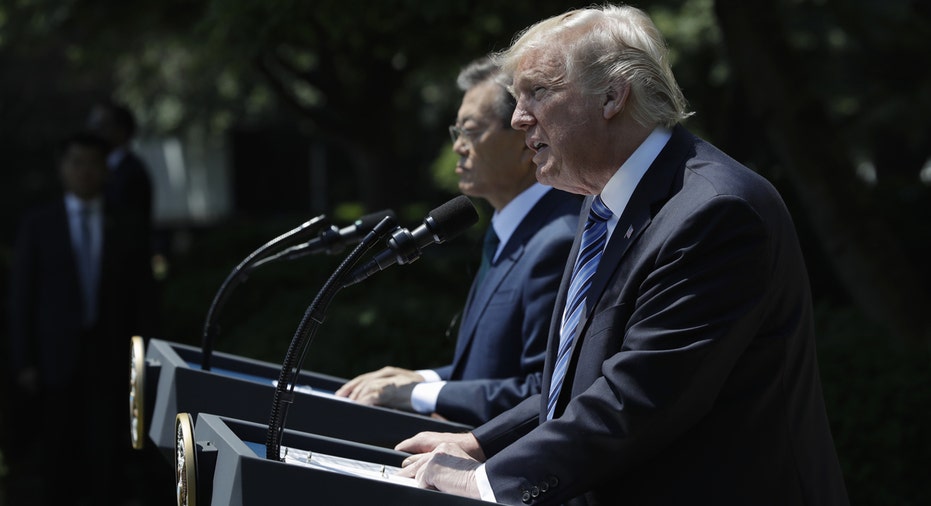Trump agrees 'in principle' to scrap South Korean warhead weight limit: White House

U.S. President Donald Trump agreed "in principle" to scrap a warhead weight limit on South Korea's missiles in the wake of North Korea's sixth nuclear test, the White House said on Monday.
During a call with South Korean President Moon Jae-in, Trump also gave "conceptual approval" for South Korea to buy billions of dollars of weapons from the United States, the White House said in a statement.
Separately, South Korea's presidential office said the two leaders had agreed to scrap the weight limit and to apply the strongest sanctions and pressure on North Korea through the United Nations.
In a separate phone call with Russian President Vladimir Putin also on Monday, Moon said the U.N. Security Council should seek ways to sever North Korea's foreign currency income, including from its workers employed abroad and oil shipments, according to the South Korean statement.
Under the existing missile pact between the United States and South Korea, Seoul's warheads currently face a cap of 500 kg (1100 lb).
The agreement, last amended in 2012, was in the process of being changed in the wake of a series of missile tests by North Korea this year after Moon took office in May, including two intercontinental ballistic missile launches.
North Korea said it tested an advanced hydrogen bomb for a long-range missile on Sunday, prompting global condemnation and a U.S. warning of a "massive" military response if it or its allies were threatened.
An unlimited warhead weight allowance would enable the South to strike North Korea with greater force in the event of a military conflict.
The missiles would still be bound by a flight range cap of 800 km. No changes to the flight range were mentioned in the Blue House statement.
Most analysts and policymakers agree cutting off supplies of oil to North Korea would hurt its economy. It remains to be seen whether China, the North's biggest ally and trade partner, would cooperate.
South Korea said earlier in the day it was talking to the United States about deploying aircraft carriers and strategic bombers to the Korean peninsula after signs North Korea might launch more missiles.
(Reporting by Christine Kim in Seoul and Valerie Volcovici in Washington; Editing by Matthew Mpoke Bigg and James Dalgleish)



















